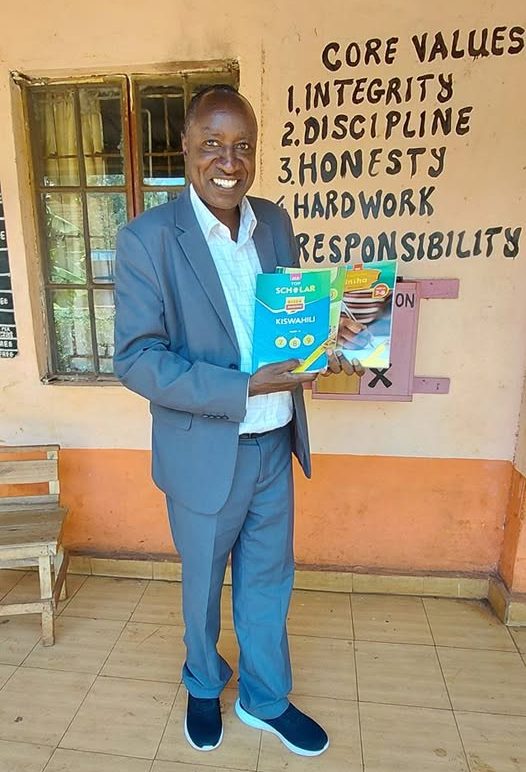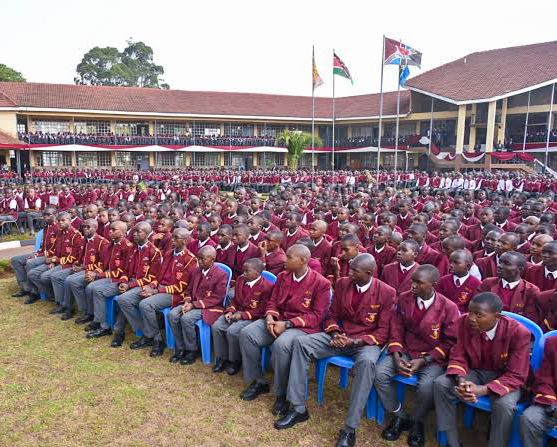The school gates have closed again, releasing millions of learners into a long holiday that will stretch over two months. For many, it is a time of rest and family reunions. For others, it is a dangerous stretch of idleness that often leads to trouble. The extended break, though necessary for teachers and students to recharge, also tests the vigilance of parents, guardians, and religious institutions in shaping the moral and mental stability of young people.
Across Kenya, every long holiday leaves a familiar trail of regret. Newspapers fill with reports of teenage pregnancies, early marriages, drug abuse, and crime involving minors. These are not random occurrences. They are the predictable outcomes of a society that assumes schooling alone is enough to mould character. The truth is that education does not pause when schools close. It only changes address. The home, the church, and the community become the new classrooms, and parents the new teachers. Unfortunately, many parents seem ill-prepared for this role.
The holiday season should not be treated as a time for endless leisure. It should be structured, purposeful, and supervised. Parents must first ensure that their children are safe from physical, moral, and digital dangers. The digital world, in particular, poses a silent threat. With smartphones, unsupervised internet access, and social media addiction, many teenagers are learning more from TikTok influencers than from their teachers or elders. Parents must therefore create clear boundaries on internet use and introduce open discussions on responsible digital behaviour. Blocking access is not enough; understanding what attracts the young to these spaces is equally important.
Religious institutions, too, must step up. Churches and mosques often limit their youth engagement to Sunday or Friday services, leaving a vacuum during the week. This is a missed opportunity. Faith-based organisations can use the long holiday to hold mentorship camps, creative arts workshops, and community service drives. Instead of simply preaching abstinence or obedience, religious leaders should equip the youth with life skills, confidence, and financial literacy. When religion connects to real-life experiences, it becomes a shield against destructive choices.
ALSO READ:
Kisii University extends deadline for fee clearance as outcry grows over graduation list
Parents must also revive the value of household responsibility. Assigning chores, encouraging home-based projects like gardening or animal rearing, and involving children in family decision-making teaches accountability. These tasks build resilience, patience, and empathy—traits that formal education often overlooks. Additionally, vocational skills training should be encouraged. Institutions such as polytechnics and technical colleges offer short courses during holidays. A teenager who learns carpentry, tailoring, or coding over the break gains more than skill; they gain purpose.
This is also the time to mend family bonds strained by busy school terms. Many learners spend most of their days in boarding schools, disconnected from their parents. Holidays present a rare chance to rebuild that relationship. Conversations should go beyond grades. Parents should listen, guide, and share their own experiences. A child who feels heard is less likely to seek validation from peers or strangers online.
Community involvement is equally vital. Chiefs, youth officers, and non-profit organisations can collaborate to organise clean-up drives, sports tournaments, reading clubs, or environmental campaigns. These activities not only keep young people occupied but also nurture teamwork, discipline, and patriotism. Kenya’s demographic is largely youthful; wasting this energy through idleness is both a social and economic tragedy.
The responsibility for guiding the youth during this holiday is collective. Teachers have done their part. Now it is upon parents, guardians, and religious leaders to continue the work. A nation that neglects its children during school breaks risks undoing the progress made in classrooms. The long holiday can either be a season of growth or a breeding ground for moral decay. The outcome depends on whether adults rise to their duty.
Parenting is not seasonal, and faith is not confined to weekends. The youth of today are exposed to a world moving faster than their moral training. It takes consistency, presence, and creativity to keep them safe and inspired. The holiday should therefore not be a pause from learning but a shift in how learning happens—away from textbooks, towards life itself.
Kenya’s future depends not only on what children learn in school but also on what they absorb at home and in their places of worship. The next two months will reveal whether we are raising a generation ready to lead or one lost in distraction. It is time for every adult to decide which side they stand on.
By Newton Maneno | manenonewton1@gmail.com
You can also follow our social media pages on Twitter: Education News KE and Facebook: Education News Newspaper for timely updates.
>>> Click here to stay up-to-date with trending regional stories
>>> Click here to read more informed opinions on the country’s education landscape






